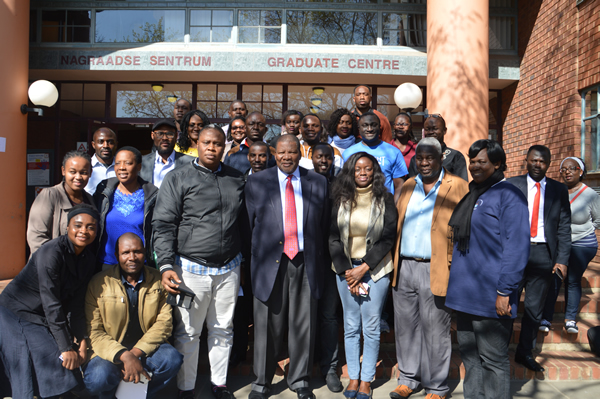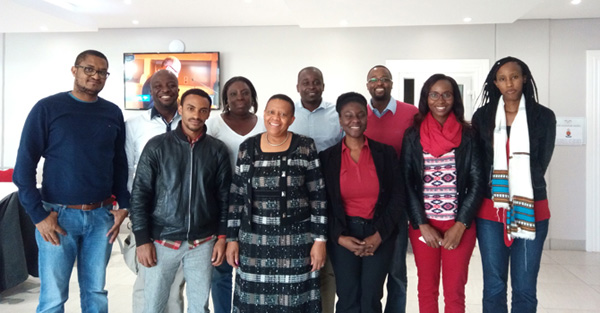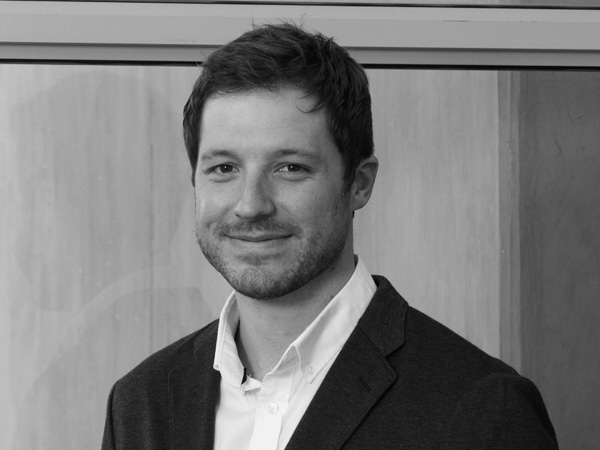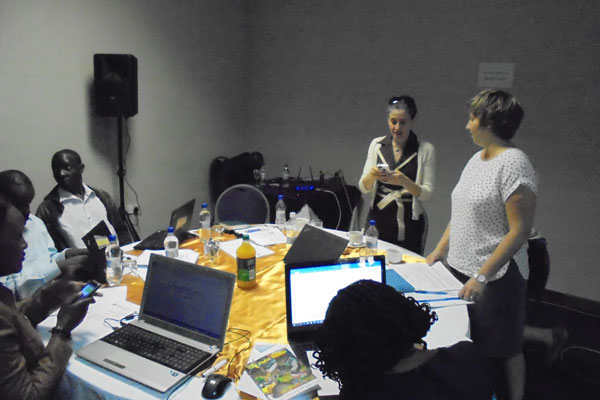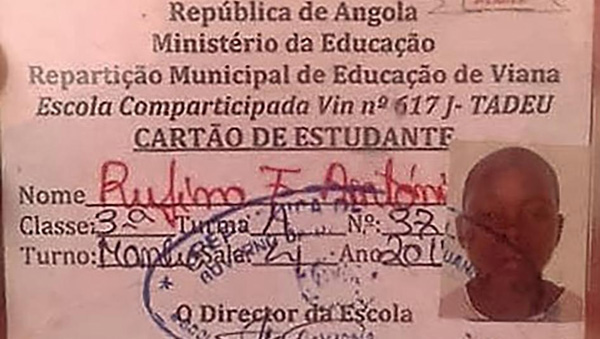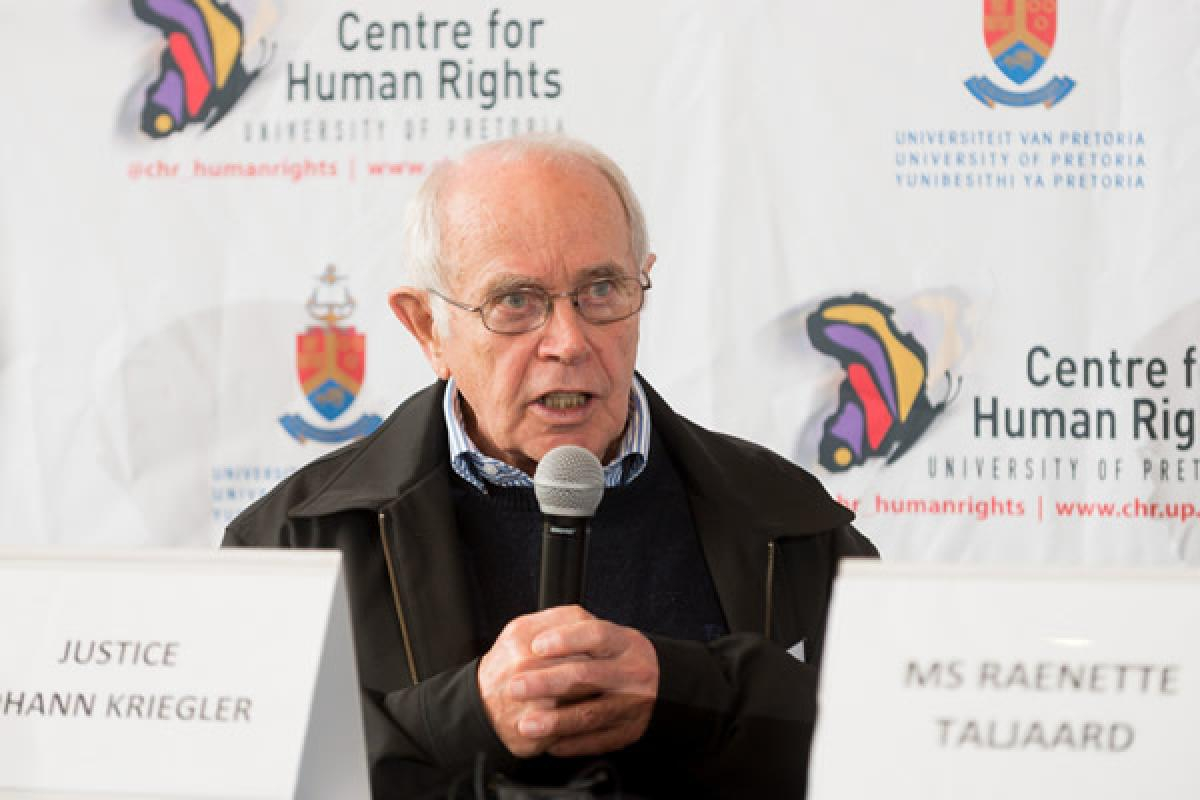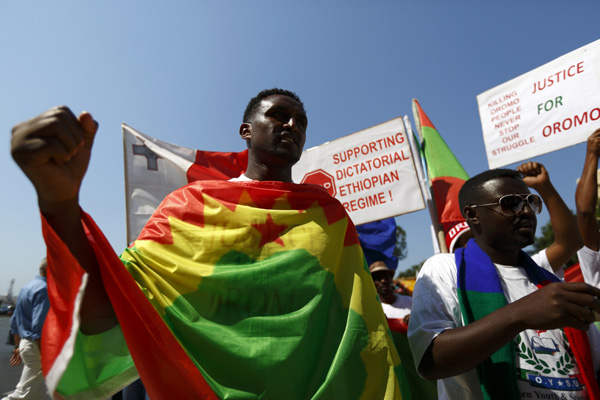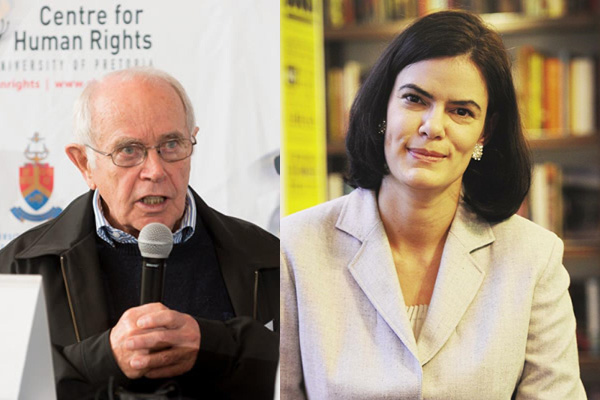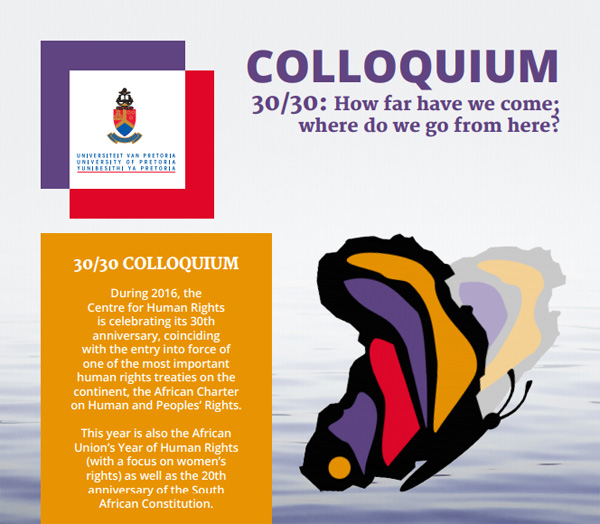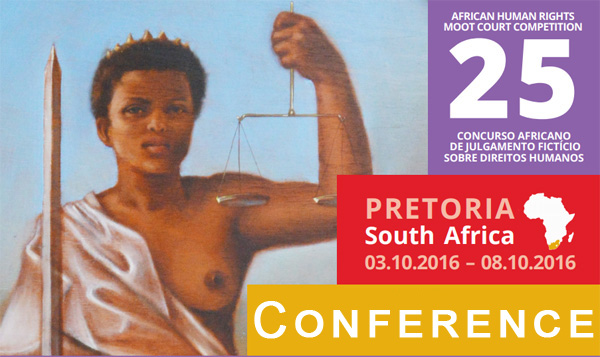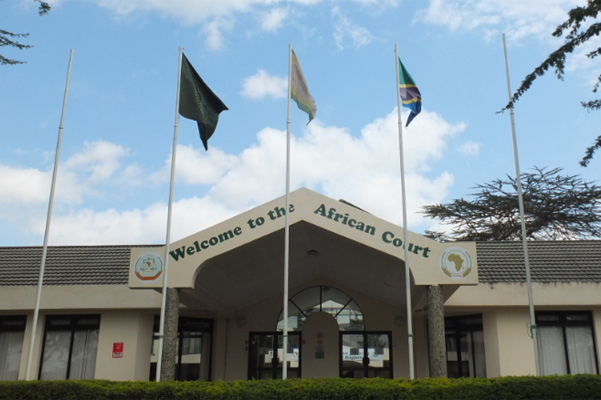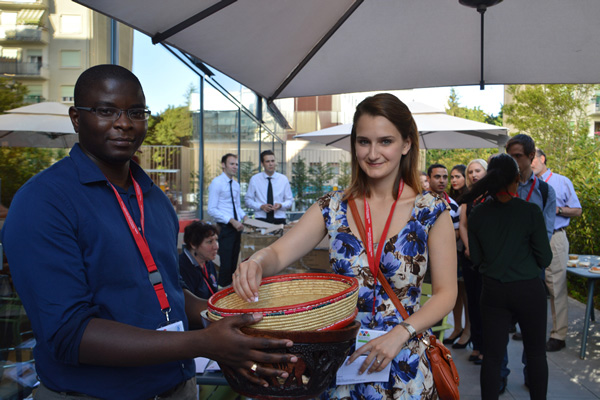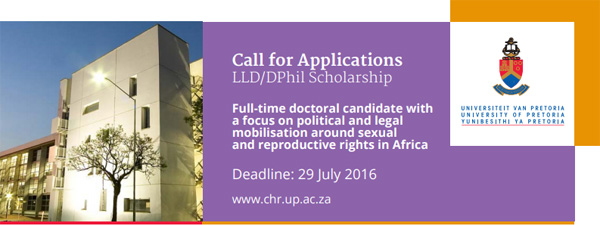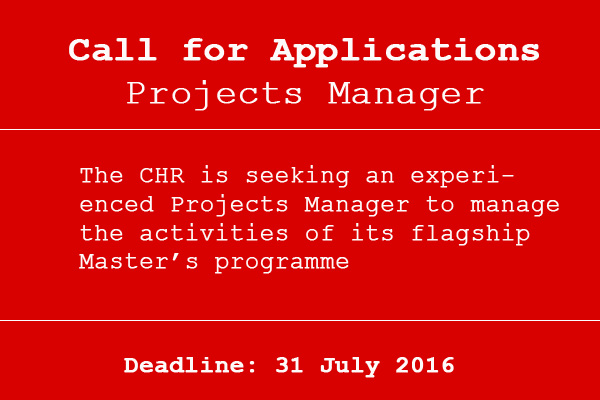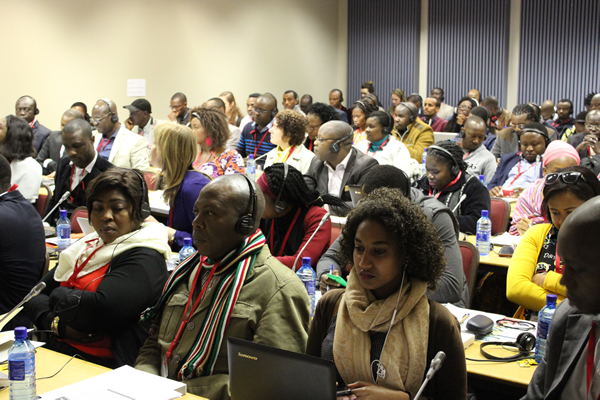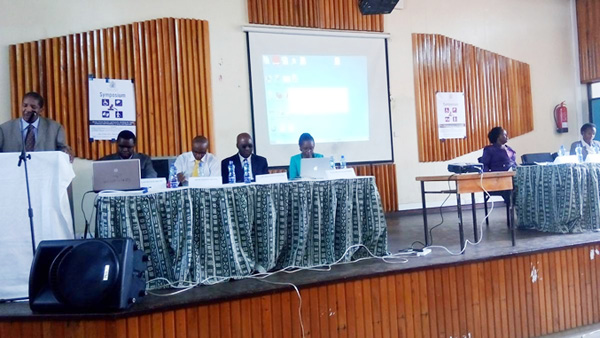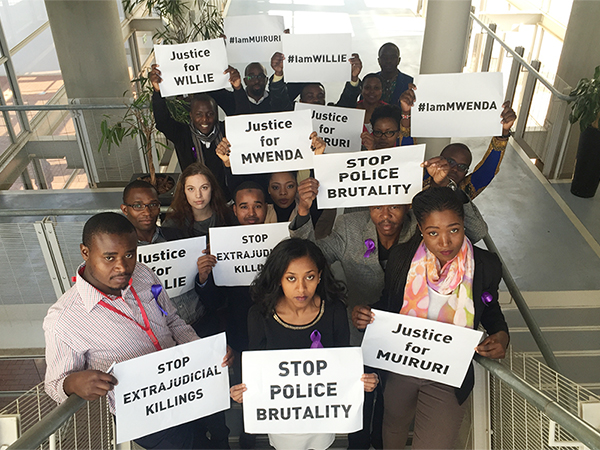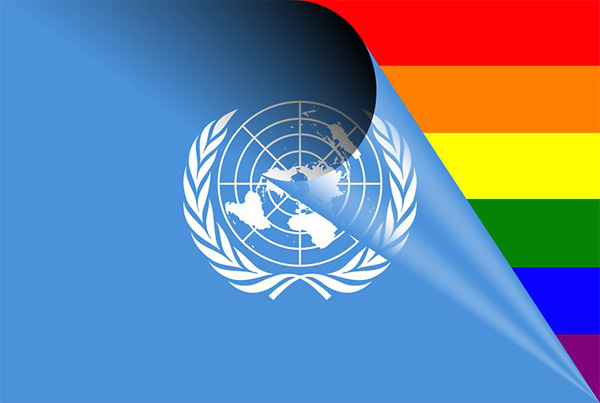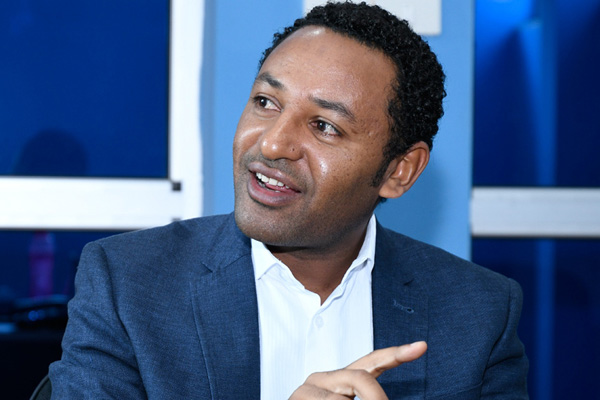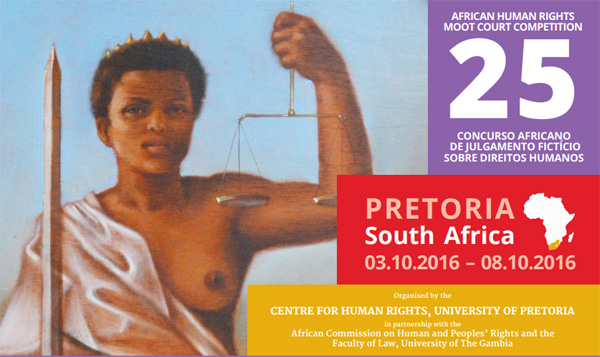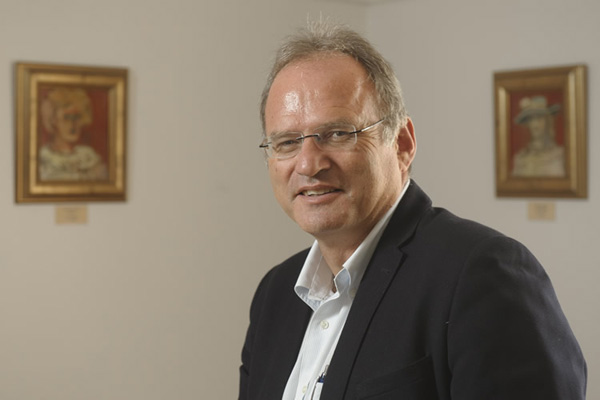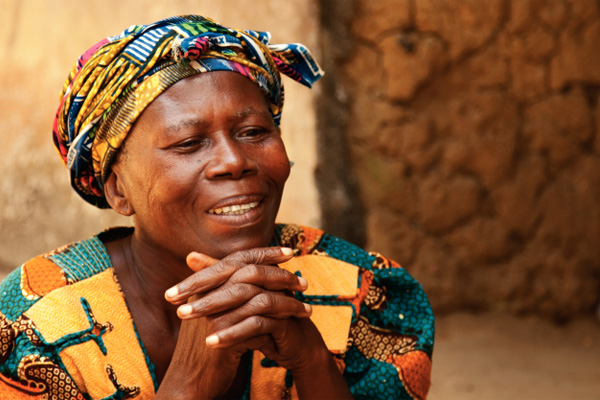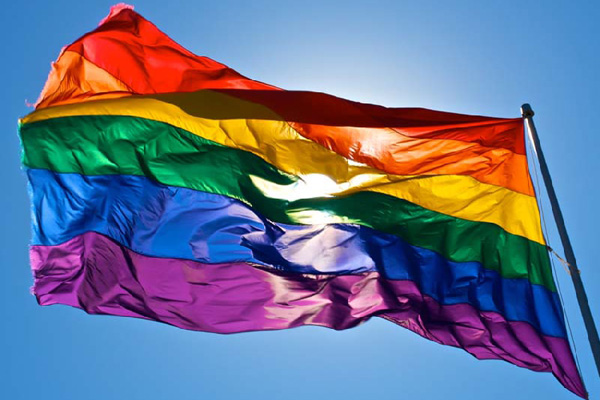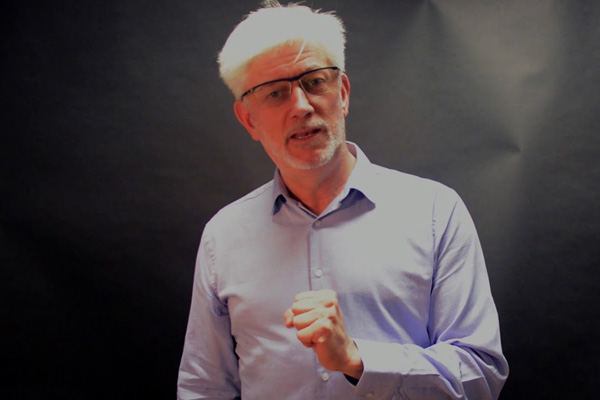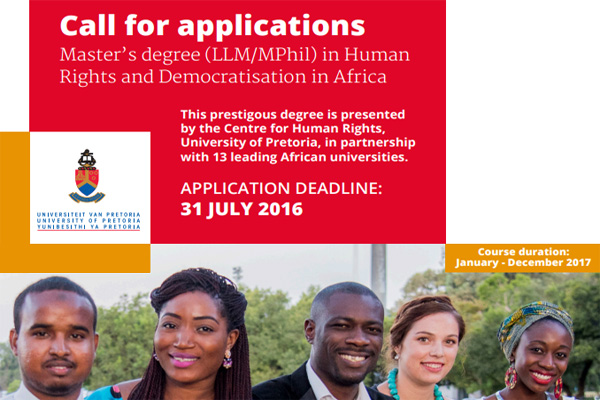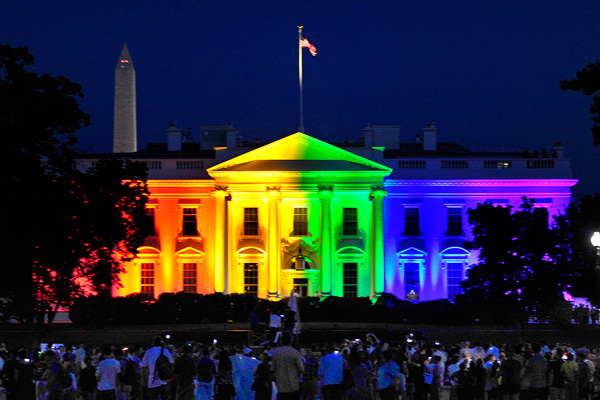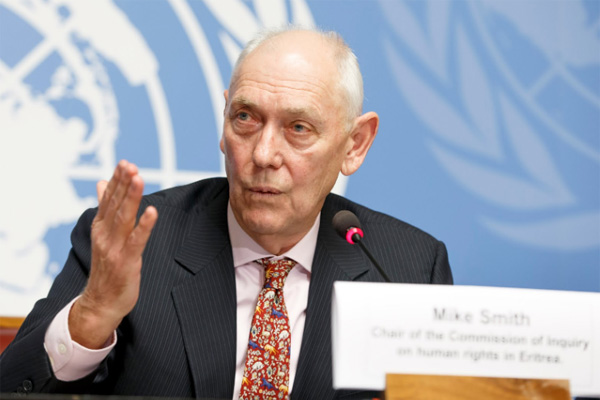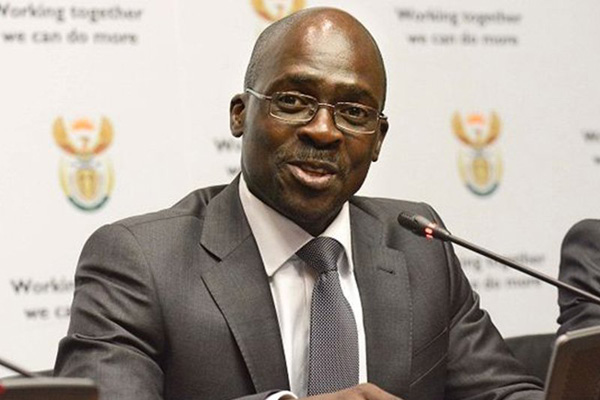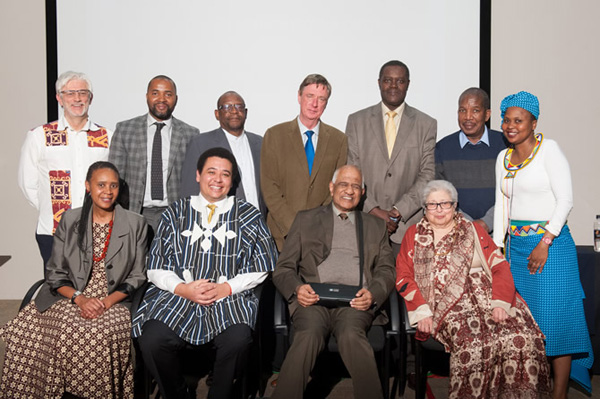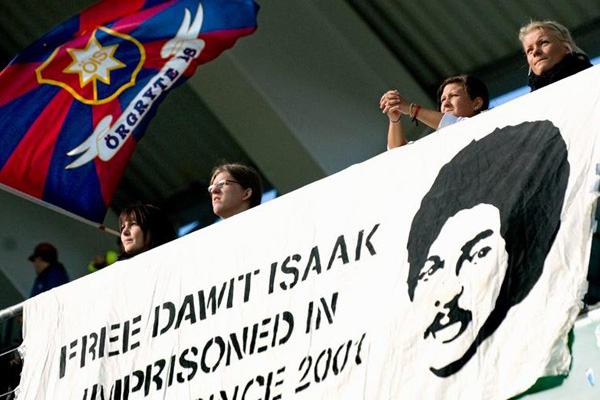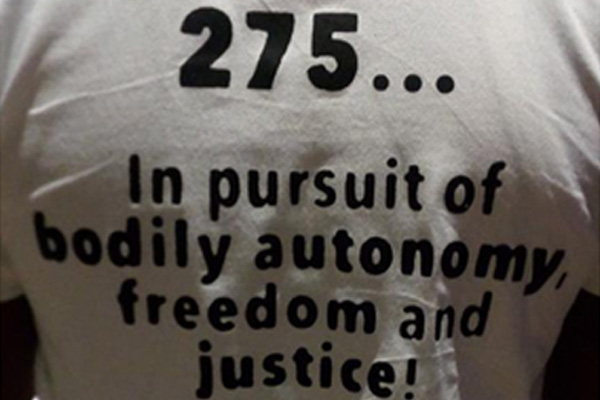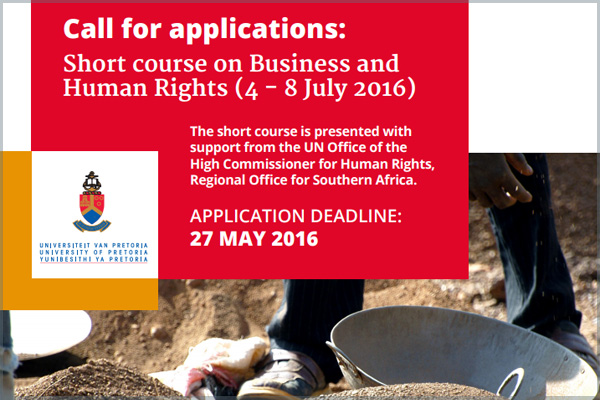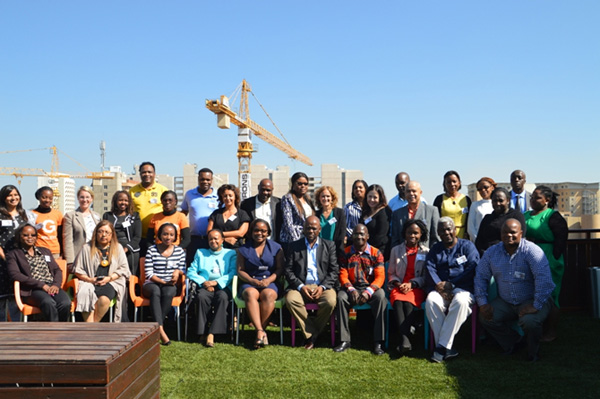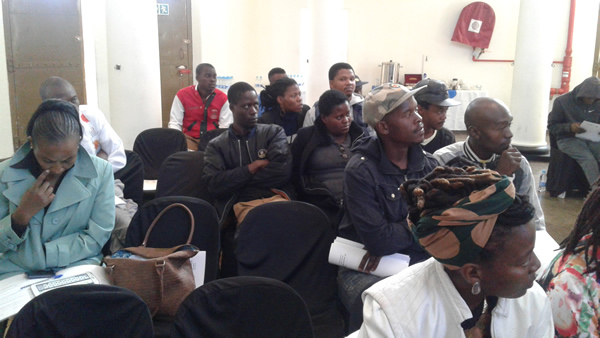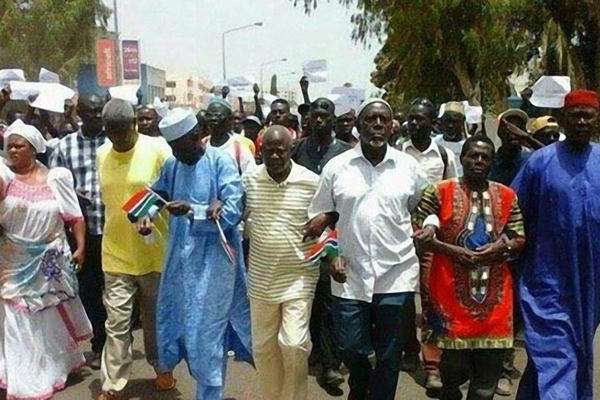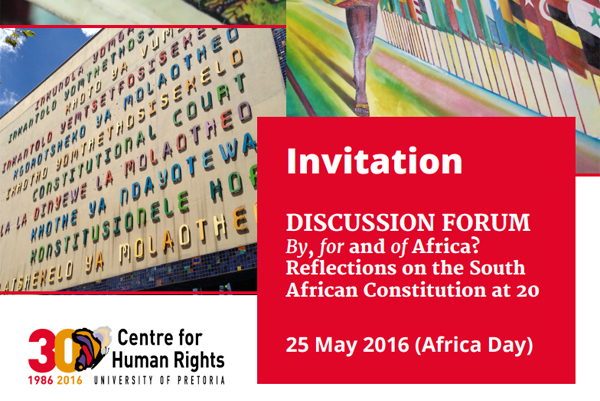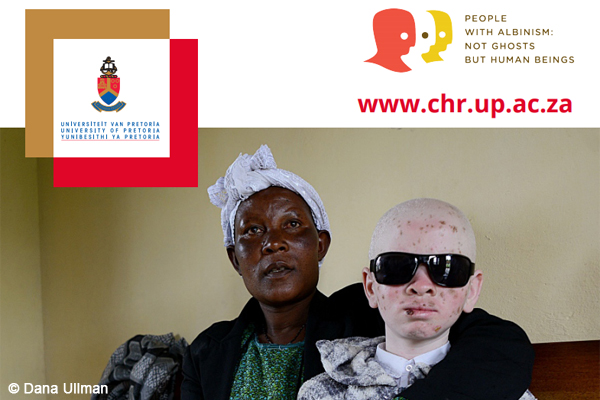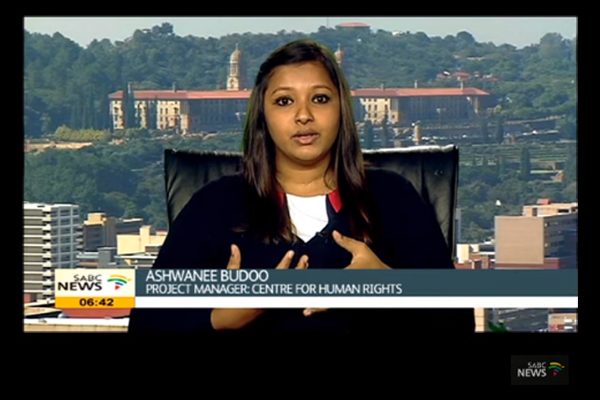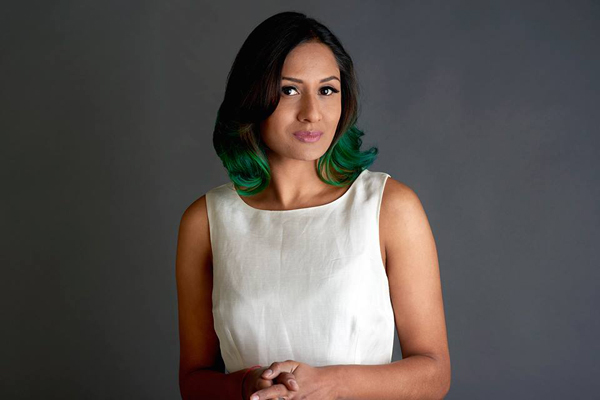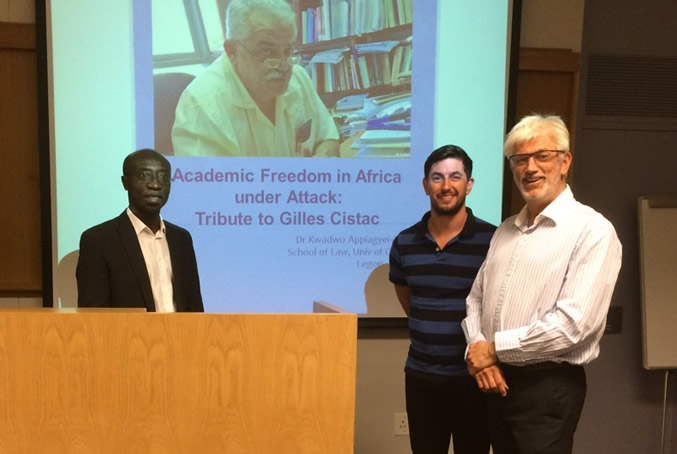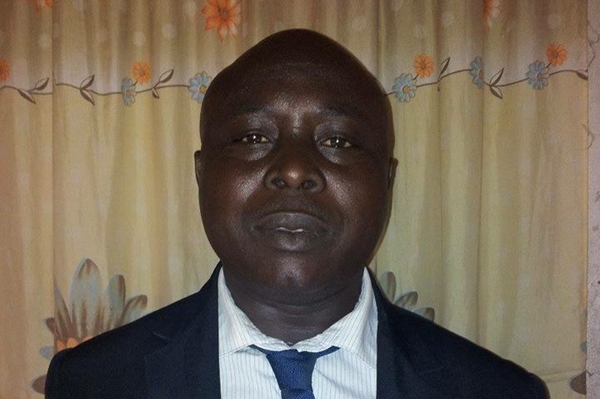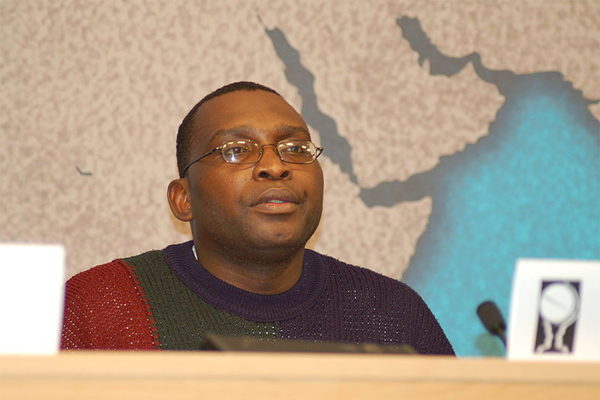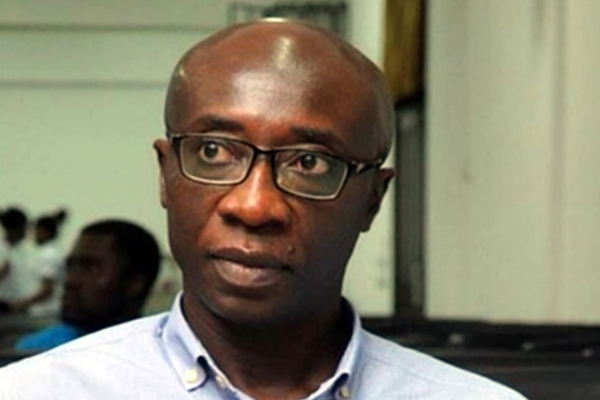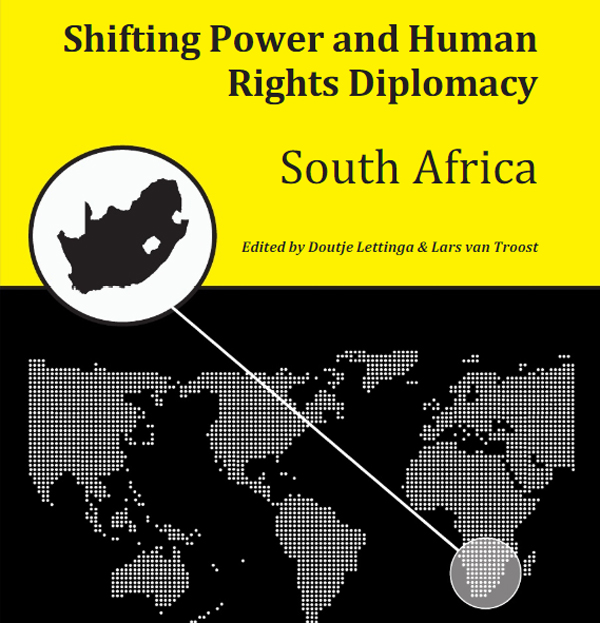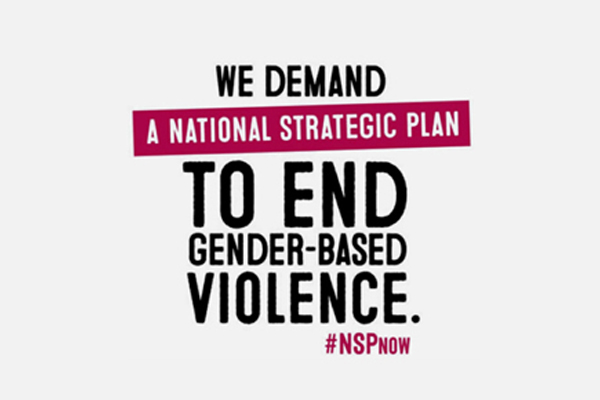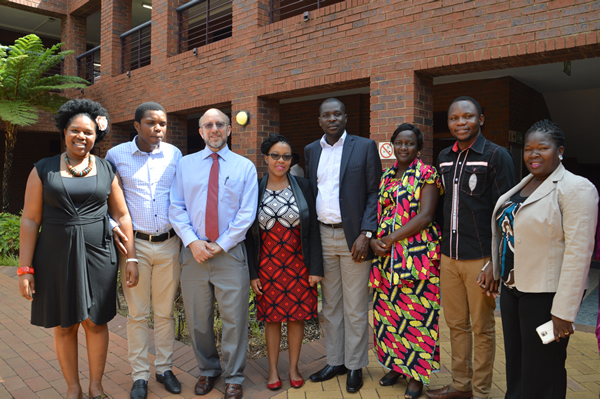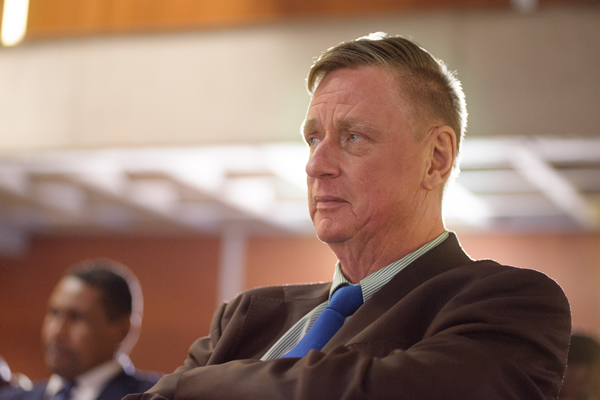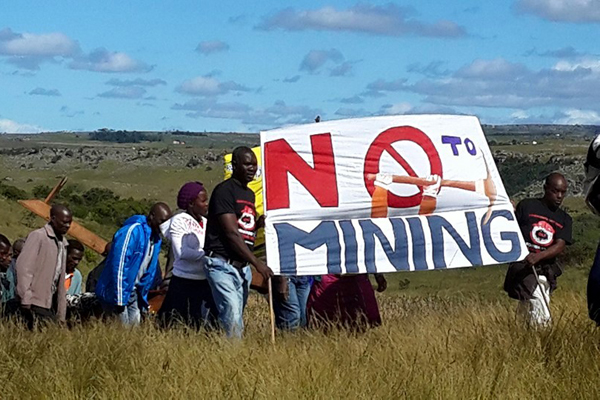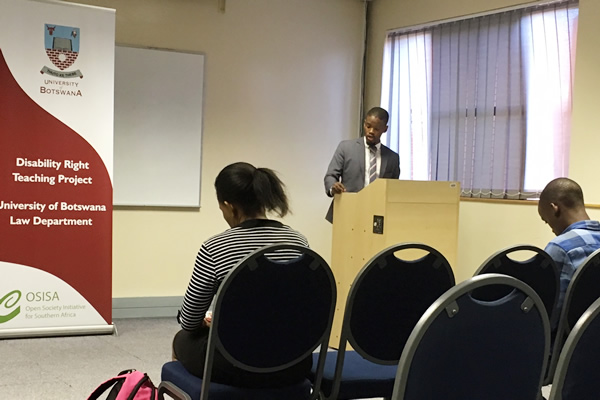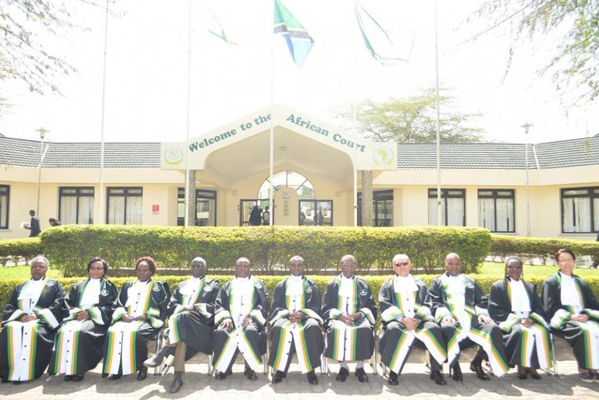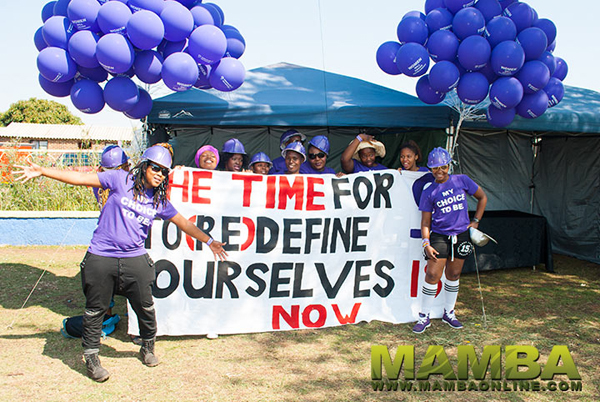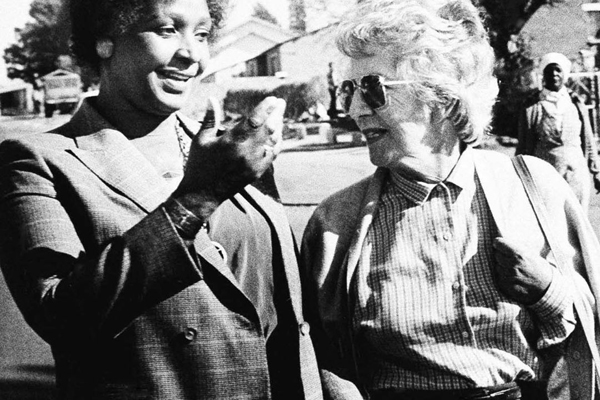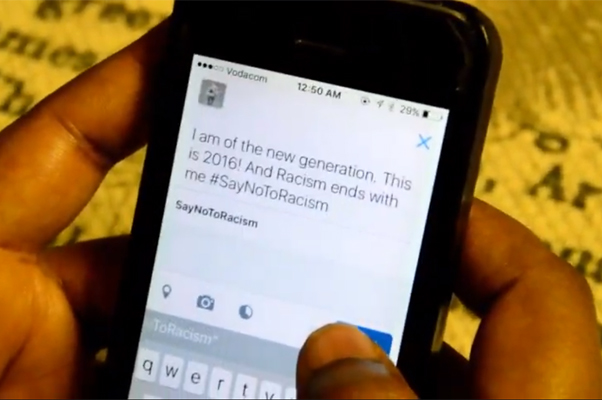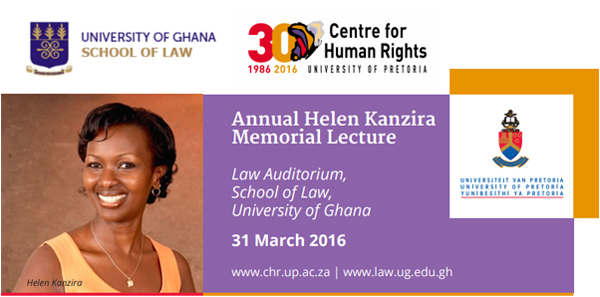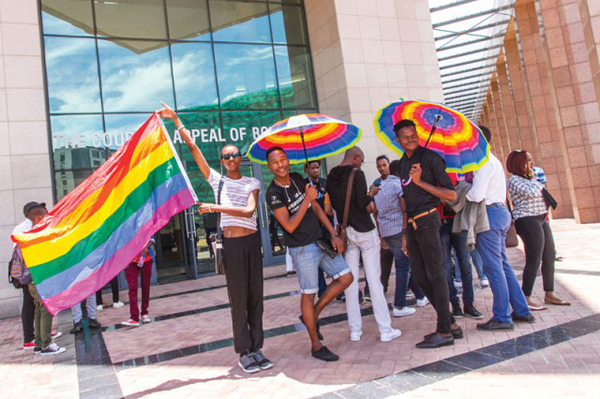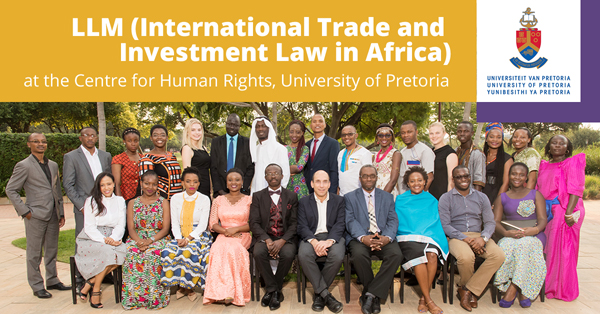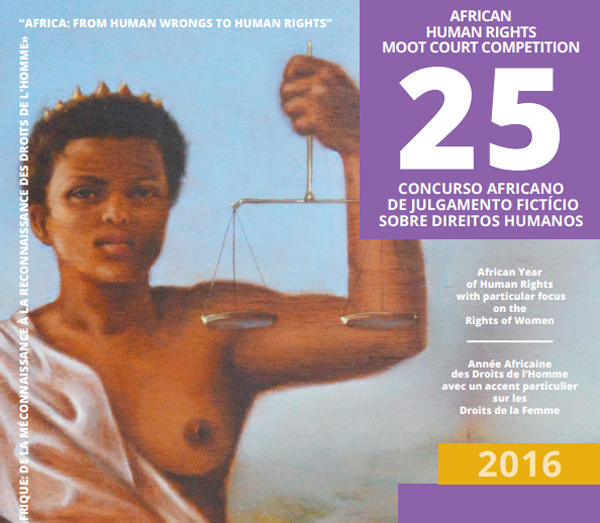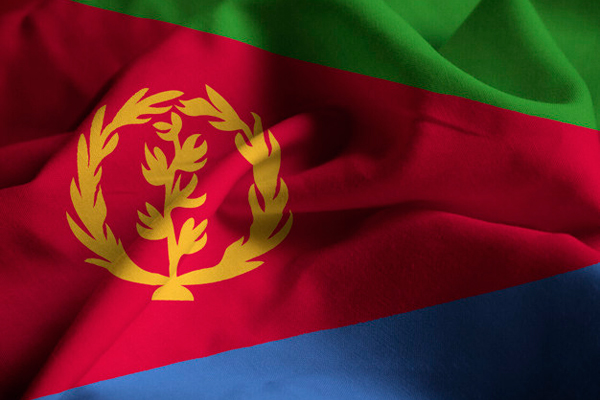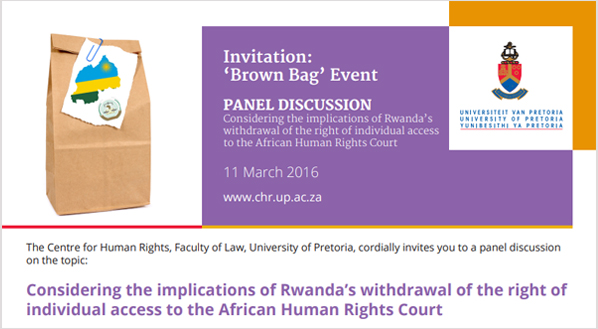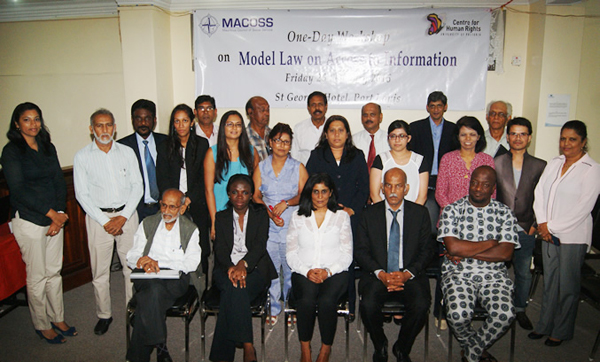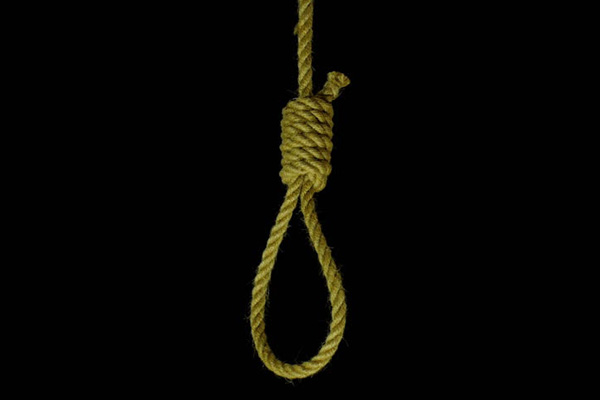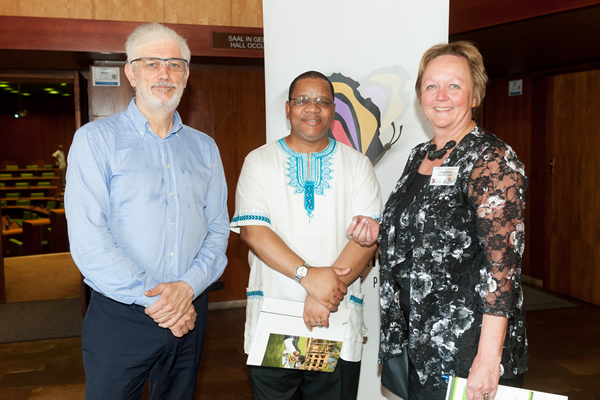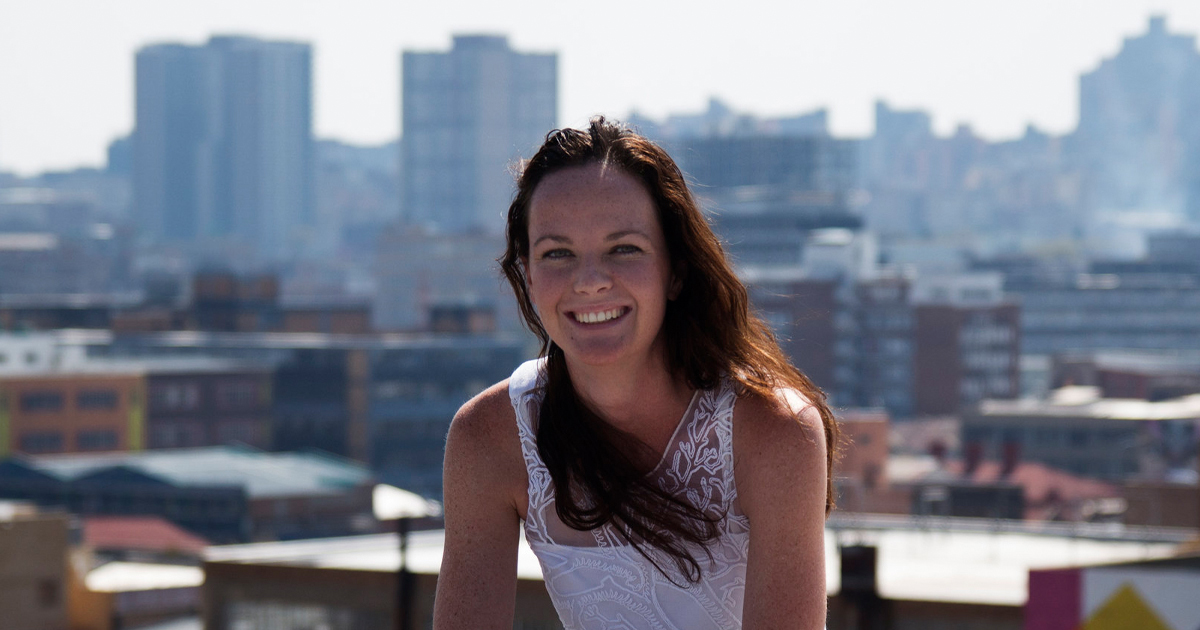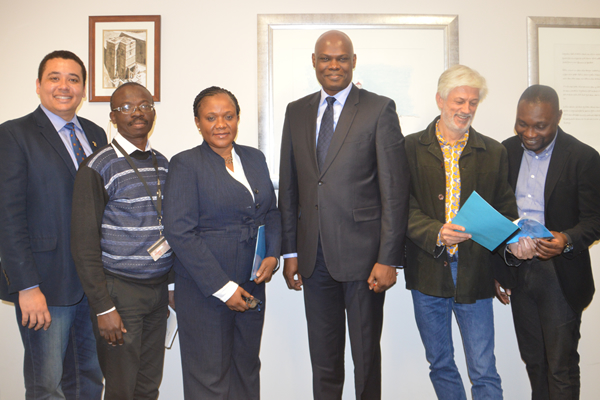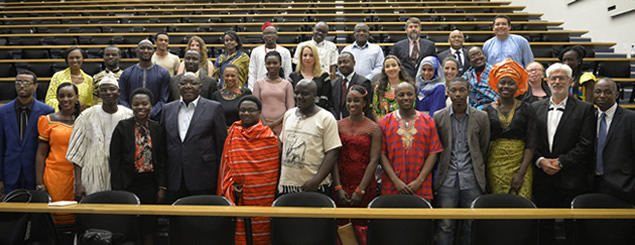- Details
The Advanced Human Rights Courses Programme (AHRC) held its annual short course on the right to development between 22 and 26 August 2016. The course aims to explore the content and scope of the right to development as enshrined in Article 22 of the African Charter as well as explore the challenges and opportunities of other international instruments in relation to development.
- Details
Back Row (From Left) Mr Ericino de Salema (Programme Director-AICE/IBIS, Mozambique), Mr Maxwell Kadiri ( Legal Officer-Open Society Justice Initiatives, Nigeria), Ms Wilhemina Mensah (Africa Regional Coordinator-CHRI, Ghana), Mr Gram Matenga (Senior Programme Officer-International IDEA, Ethiopia), Mr Jeggan Grey-Johnson (Advocacy and Communications Officer-AFRO-OSF, South Africa)
Front Row (From Left) Mr Abiy Ashenafi (Researcher-Centre for Human Rights, University of Pretoria), Ms Pansy Tlakula (Special Rapporteur on Freedom of Expression and Access to Information in Africa-ACHPR), Ms Olufunto Akinduro ( Head of Elections-EISA, South Africa), Ms Hanifa Gutu (Programme Assistant/Researcher: FOE & ATI- Centre for Human Rights, University of Pretoria), Ms Eva Heza (Secretariat- ACHPR, Gambia).
The Centre for Human Rights, in collaboration with the Special Rapporteur on Freedom of Expression and Access to Information in Africa Commissioner Pansy Tlakula, recently held a focus group meeting on the development of Guidelines on Access to Information and Elections.
The meeting took place at the Aviator Hotel O.R. Tambo, Johannesburg, from 17 to 18 August. The focus group comprised of 12 representatives from civil society organizations and other stakeholders working on Elections, the Media or Access to Information.
- Details
The Centre for Human Rights, Faculty of Law, University of Pretoria is proud to announce that Josua Loots, a Project Manager at the Centre, has been selected to participate in the fifth official Dutch Visitors Programme (DVP).
Participants are nominated by Dutch Embassies around the world, who are then submitted to a selection process. The DVP is a special programme conducted by the Dutch Ministry of Foreign Affairs that brings together eight individuals from eight different countries for a study trip to the Netherlands.
- Details
The Disability Rights and Law Schools Project in Africa partner universities met for a 3-day meeting at Pandari Hotel in Harare, Zimbabwe. The meeting which was held from the 1st to the 3rd of August was an opportunity for the network of university partners to discuss progress, challenges, opportunities and impact of the project at their respective universities and develop collective strategies for taking the project forward.
- Details
Student card of Rufino Antonio, 14, who was killed by gunfire from the military police during a peaceful protest against home demolitions on August 6, 2016 in Zango II, Luanda, Angola. © 2016 Human Rights Watch
The Centre for Human Rights (CHR), Faculty of Law, University of Pretoria, is saddened by the fatal shooting of 14-year old Rufino Antonio by members of the Angolan military police during a peaceful protest in Luanda on 6 August 2016.
The peaceful protests, organised by local residents against planned demolition for commercial and industrial purposes by the Luanda-Bengo Special Economic Zone, turned violent when members of the military police opened fire on unarmed peaceful protesters, killing the young Rufino.
- Details
The possibility of reforming South Africa’s national electoral systems was the topic of discussion at an event co-organised by the Centre for Human Rights, University of Pretoria, and the Centre for Constitutional Rights. The topic is very timely, in the wake of the recent local elections, with ANC Secretary General Gwede Mantashe recently calling for a debate about desirability of the proportional representation in the electoral system.
- Details
The Centre for Human Rights, University of Pretoria, is deeply concerned by the ongoing human rights violations in Ethiopia following popular anti-government protests in the Amhara and Oromia regional states, as well as in the capital, Addis Ababa.
- Details
Justice Bernard Ngoepe, the first and as yet only South African to have served as a Judge on the African Court on Human and Peoples’ Rights (African Human Rights Court), recently lamented the lack of knowledge, awareness and interest among South African lawyers, and the public more generally, of this Court. The African Human Rights Court, which is the principal judicial organ of the African Union, this year commemorates 10 years’ existence. Judge Ngoepe made his remarks at an event hosted by the Centre for Human Rights, University of Pretoria, on 4 August 2016, during which a panel reflected on the accomplishments and challenges of the Court’s first decade.
- Details
The Centre is delighted to announce the successful presentation of the 8th edition of the Nelson Mandela World Human Rights Moot Court Competition, which was held at Palais des Nations – the seat of the United Nations Office in Geneva – from 18 to 20 July 2016.
The Nelson Mandela World Human Rights Moot Court Competition has been presented every year for the last 8 years, bringing together some of the youngest and brightest law students from universities all around the globe to debate burning contemporary human rights issues on the basis of a common UN human rights system, influenced by national and regional perspectives and experiences. The Competition is unique in reaching a broad base of participants, including from those parts of the world where regional human rights systems have not been established, or have only been recently introduced.
- Details
Join us for a breakfast discussion on Tuesday 16 August 2016, hosted by the Centre for Constitutional Rights (CFCR) and the Centre for Human Rights (CHR) at the University of Pretoria, supported by the Konrad Adenauer Foundation (KAS).
- Details
Invitation to all the friends and alumni of the Centre for Human Rights, University of Pretoria (of the various academic programmes, moot court competitions and short courses).
- Details
The Centre for Human Rights, Faculty of Law, University of Pretoria in collaboration with the African Commission on Human and Peoples’ Rights (the African Commission) and the Faculty of Law, University of The Gambia invites abstracts for a conference celebrating the African Year of Human Rights with particular focus on women.
![]() Download this Call for Abstracts in PDF (English)
Download this Call for Abstracts in PDF (English)
![]() Download this Call for Abstracts in PDF (Français)
Download this Call for Abstracts in PDF (Français)
![]() Download this Call for Abstracts in PDF (Português)
Download this Call for Abstracts in PDF (Português)
- Details
The Centre for Human Rights, Faculty of Law, University of Pretoria, cordially invites you to a Discussion Forum that forms part of a series of events, to commemorate the 30th anniversary of the Centre of Human Rights in 2016.
The discussion aims to reflect on the achievements of the African Court on Human and Peoples’ Rights, a continental court established in terms of a Protocol to the African Charter on Human and Peoples’ rights. The court which is based in Arusha, Tanzania, complements and reinforces the functions of the African Commission on Human and Peoples’ Rights, in relation to its protective mandate.
- Details
The 8th Nelson Mandela World Human Rights Moot Court competition is currently underway in Geneva, Switzerland. For the past seven years, the competition was held in December to coincide with International Human Rights Day. From 2016 onwards the competition will be held on and around 18 July to celebrate the birthday of late South African President Nelson Mandela.
- Details
The Centre for Human Rights, University of Pretoria, in collaboration with the Chr. Michelsen Institute (CMI), University of Bergen calls for applications for a full-time doctoral candidate with a focus on political and legal mobilisation around sexual and reproductive rights in Africa. The candidate will be based at the Centre for Human Rights, Faculty of Law, University of Pretoria, South Africa.
- Details
The Centre for Human Rights (CHR) at the University of Pretoria is seeking an experienced Projects Manager to manage the activities of its flagship Master’s programme in Human Rights and Democratisation in Africa and the Human Rights Clinics attached to this programme. The appointment will be on a fixed-term renewable contract for one year, subject to the availability of funding and performance. The Master’s programme has been running since 2000.
- Details
The Centre for Human Rights, University of Pretoria, hosted its first short course on business and human rights at the University of Pretoria from 4 - 8 July 2016. The course brought together 50 people from across Africa, mainly representing civil society, national human rights institutions, and academia. The course was organised with support from the United Nations Office of the High Commissioner for Human Rights, Regional Office for Southern Africa.
- Details
On 13 December 2016 it will be the tenth anniversary of the adoption of the Convention on the Rights of Persons with Disabilities (CRPD). The Convention which came into force in 2008 has to date been ratified by 43 African countries including Kenya. The Disability Rights Project at the University of Nairobi’s School of Law hosted a public symposium at its Parklands Campus on the 30th of June 2016 to explore the character, prospects and challenges of realizing the rights of persons with disabilities protected under the CRPD in Kenya and regionally.
- Details
The Centre for Human Rights, University of Pretoria, expresses its deepest condolences to the families of Willie Kimani, Josephat Mwenda and Joseph Muiruri who were killed in Kenya on or around 23 June 2016. On 23 June 2016, Willie Kimani, a Kenyan human rights lawyer working for International Justice Mission, and his client Josephat Mwenda, attended the hearing of a criminal case at Mavoko Law Courts in Machakos County, Kenya. Mr Mwenda, a motorcycle operator, was charged with overloading and possession of marijuana.
- Details
The Centre for Human Rights, University of Pretoria, notes with regret that the South African government did not support the recent establishment of a United Nations watchdog to monitor and report on violence and discrimination world-wide against persons based on their sexual orientation and gender identity. Taken at face value, abstaining from supporting this measure is perplexing. The substantiation given for our vote is not convincing. The onus remains on the government to fully explain to all South Africans why it has taken this approach.
- Details
Dr Solomon Dersso, Commissioner, African Commission on Human and People's Rights
The Centre for Human Rights, University of Pretoria, is hosting its first Short Course on Business and Human Rights in Pretoria from 4 - 8 July 2016. This Course was made possible through support received from the UN Office of the High Commissioner for Human Rights, Regional Office for Southern Africa.
- Details
As the spotlight falls on the adoption of South Africa’s landmark Constitution, 20 years ago this year, one of its striking features -- the inclusion of the first-ever constitutional guarantee of non-discrimination based on sexual orientation -- is also under global scrutiny.
The scene is set at the current session of the United Nations (UN) Human Rights Council, taking place in Geneva, Switzerland, until Friday 1 July. The Human Rights Council is the UN’s primary human rights body, tasked with advancing and overseeing the protection and promotion of human rights in UN Member States. South Africa is currently represented in the 47-member Council.
- Details
In a statement released on 12 May 2016, the Centre for Human Rights explained why we agreed, after extensive consultations with our partners, to co-host the African Human Rights Moot Court Competition in Banjul, The Gambia, despite issues we had raised in an earlier statement on 20 April 2016, condemning human rights violations in The Gambia and calling for the relocation of the AU’s African Year of Human Rights celebrations away from Banjul.
![]() Download this press statement (English)
Download this press statement (English)
![]() Téléchargez ce communiqué de presse (Français)
Téléchargez ce communiqué de presse (Français)
![]() Faça o download deste Declaracao a Imprensa (Português)
Faça o download deste Declaracao a Imprensa (Português)
- Details
Prof Christof Heyns, former Director of the Centre for Human Rights and Professor of human rights law at the University of Pretoria, was nominated in March 2016 by the South African Government as its candidate to the prestigious 18 member United Nations Human Rights Committee, and was elected as a member in New York on 23 June 2016.
The brochure prepared by the South African Government, as well as endorsements of his candidature by various luminaries in the field, are listed below.
![]() Download the brochure for Prof Christof Heyns
Download the brochure for Prof Christof Heyns
![]() Download the endorsements for Prof Christof Heyns
Download the endorsements for Prof Christof Heyns
- Details
In view of assisting and strengthening the mechanism of the Special Rapporteur on the Rights of Women in Africa (SRRWA), on the 8 and 9 June 2016, the Gender Unit of the Centre for Human Rights organised and convened a workshop in Cote d'Ivoire on state reporting under the Protocol to the African Charter on Human and Peoples’ Rights on the Rights of Women in Africa (Women’s Protocol). The workshop was held on the 8 and 9 June 2016.
- Details
On 17 May 2016 the Seychelles parliament passed a landmark bill to amend the country’s Penal Code to decriminalise sodomy. This was fittingly done on the day of the commemoration of the International Day Against Homophobia, Bi-phobia and Transphobia (IDAHOT or IDAHOBiT).
- Details
Celebrating Youth Day, introduced in the post-apartheid era, always has a historical dimension, but this is even pronounced this year, which marks a landmark 40 years since those fateful events of 16 June 1976.
We are reminded that 16 June 1976 was a turning point in at least three important ways.
Before thousands of school children took to the streets of Soweto to protest the imposition of Afrikaans as language of instruction for three subjects (geography, mathematic and history), it was still possible to sell apartheid as benevolent paternalism. After the blatant authoritarianism of imposing an extremely onerous policy without consultation or any effort at articulating reasonable grounds as justification, the benevolence-defence was no longer legitimately open to apologists of apartheid. The scales fell of the eyes of many, increasingly also white South Africans.
Call for Applications: Three Master's degrees at the Centre for Human Rights, University of Pretoria
- Details
The Centre for Human Rights is pleased to announce the call for applications for the following three Master's degrees to be offered in 2017:
LLM/MPhil HRDA
(Human Rights and Democratisation in Africa)
This prestigious one-year intensive course is unique in Africa and attracts the brightest human rights scholars on the continent. Up to 25 FULL scholarships are available for African citizens.
- Details
Sunday 12 June 2016 was a sad day in the history of the struggle for LGBTI rights in the world. Fifty revellers were gunned down at Pulse, a gay club in Orlando, Florida, USA. The gunman’s actions were apparently inspired by his hatred for persons of a different sexual orientation and gender identity.
The Centre for Human Rights (CHR) and the Centre for Sexualities, AIDS and Gender (CSA&G), both at the University of Pretoria, believe in and work for the realisation of the rights of all persons on the African continent, including sexual minorities, based on the rights protected by the African Charter on Human and Peoples’ Rights. We strongly condemn this heinous act, and call upon all to respect the rights of all persons around the globe irrespective of what or who they are.
- Details
The Centre for Human Rights (CHR), Faculty of Law, University of Pretoria welcomes the publication of the report of the Commission of Inquiry on human rights in Eritrea (COIE) confirming that crimes against humanity have been committed in Eritrea. This report comes a few weeks after Eritrea’s jubilant 25th independence anniversary, during which the country celebrated its liberation after a long struggle.
- Details
Malusi Gigaba, the South African Minister of Home Affairs, has admitted that his department has often failed LGBTI South Africans, but says he is finally taking steps to ensure that they are treated as equal citizens.
As we’ve regularly reported over the years, Home Affairs has been slated for some of its officials’ discriminatory refusal to marry same-sex couples, as well as its degrading and harmful treatment of transgender people.
- Details
Front: Prof Sandy Africa, Mr Norman Taku, Justice Zak Yacoob and Dr Frene Ginwala
Back: Prof Frans Viljoen, Dr Alfredo Tjiurimo Hengar, Dr Mathole Motshekga, Justice Johann van der Westhuizen, Advocate Bahame Tom Nyanduga, Prof Charles Ngwena and Ms Thuto Hlalele
The Constitution of the Republic of South Africa, 1996, symbol of a transformative South Africa emanating from a deeply divided society, was adopted on 8 May 1996. On 25 May 2016, the Centre for Human Rights celebrated Africa Day, as well as the 20-year existence of the Constitution, as part of a series of events commemorating the Centre’s establishment 30 years ago, in May 1986.
- Details
The Centre for Human Rights, Faculty of Law, University of Pretoria, congratulates Eritrea on its 25th independence celebrations. Today, 24 May 2016, marks 25 years since Eritrea declared independence from Ethiopia after 30 long years of civil war. To the Eritrean people, 24 May 1991 marked the beginning of an era they hoped would bring peace, justice, equality and prosperity. The people of Eritrea had long hoped for a democratic society where human rights and fundamental freedoms are respected, upheld and defended and an unrestricted space created for personal as well as community development.
- Details
The Centre for Human Rights from 24 to 27 May co-hosted a meeting of experts, together with the Special Rapporteur of the African Commission on Human and Peoples’ Rights on Freedom of Expression and Access to Information, to contribute towards the adoption of guidelines on access to information in electoral processes in Africa.
- Details
From 3 to 5 March 2016 the South African Human Rights Commission convened an African regional seminar to discuss how to practically end violence and other forms of discrimination against persons based on their sexual orientation and gender identity and expression (SOGIE).
- Details
Thank you very much for your interest in the Short Course on Business and Human Rights.
Due to the overwhelming number of applications we received, we will only be contacting successful applicants directly. Please keep a look out for future events of the same nature.
The Centre for Human Rights, University of Pretoria is pleased to announce a pilot short course on business and human rights that will be held at the University of Pretoria, from 4 - 8 July 2016.
The course is presented with support from the UN Office of the High Commissioner for Human Rights, Regional Office for Southern Africa.
- Details
The Gender Unit of the Centre for Human Rights organised a two day child marriage dialogue with 27 participants from South Africa and Mozambique in collaboration with the Commonwealth Initiative. The child marriage dialogue was held on 5 and 6 May 2016 at the Protea Hotel, Hatfield, Pretoria, South Africa.
The Gender Unit has been providing technical support to the African Commission on Human and Peoples’ Rights’ (African Commission) Special Rapporteur on the Rights of Women in Africa (SRRWA) in the area of child marriage through the drafting of:
- a report on child marriage to be adopted by the African Commission; and
- general comments on child marriage to be adopted by the African Commission and the African Committee of Experts on the Rights and Welfare of the Child.
- Details
The African Youth Charter (AYC) was adopted on 2 July 2006 during the 7th Ordinary Session of the Assembly of the African Union, held in Banjul, The Gambia. Its ten year anniversary is celebrated during 2016, as part of the African Union Year of Human Rights. The main celebration centres around 30 years since the entry into force of the African Charter on Human and Peoples’ Rights on 21 October 1986. A consultative meeting to commemorate the 10th anniversary of the adoption of the AYC took place on 11 May 2016 at the Women’s Gaol Lekgotla, Constitutional Hill, Johannesburg. The coordinator of the Child Rights Unit of the Centre for Human Rights, Alina Miamingi, attended the event focusing on the AYC.
- Details
In a statement on 18 April 2016, the Centre for Human Rights expressed grave concern about the human rights situation in The Gambia, on the basis of events that took place from 14 to 16 April 2016. The Centre called on the government of The Gambia to diligently investigate the events; bring to justice and punish those responsible; release from detention those involved in peaceful protest; and provide adequate medical attention to those injured in the protests and in detention.
- Details
The Centre for Human Rights, Faculty of Law, University of Pretoria, cordially invites you to a Discussion Forum on Africa Day that forms part of a series of events celebrating the Centre’s 30th anniversary during the course of 2016.
The discussion aims to reflect on the extent to which the South African Constitution is African in its inspiration, ownership and solidarity with the rest of the continent.
The Discussion Forum draws inspiration from two historical dates. On 9 May 1996 then Deputy President Thabo Mbeki made his ‘I am an African’ speech, on the occasion of the adoption of the current South African Constitution. His inaugural words grounded the Constitution in an African identity that stretches beyond the borders of South Africa, in a mutually reinforcing manner, with other African countries. On 25 May, Africa Day is annually celebrated in recognition of the formation of the Organisation of the African Union on that day in 1963.
- Details
The focus of the conference is on developing responses to the persistence and intensity of the violations of the rights of persons with albinism in the African region. The conference will be held at the Centre for Human Rights from 9-10 November 2016 in Pretoria, South Africa. It is anticipated that papers presented at this conference will be reworked by authors and submitted for consideration for publication in 2016 in a peer-reviewed journal. Also we expect that the selected works will propose ideas and solutions which can be further consulted by policymakers and relevant institutions.
- Details
It’s Freedom Day, a day that reminds us that on 27 April 1994, South Africa had its first democratic elections. All South Africans were for the first time free to vote. Since then, millions of South Africans have expressed their political freedom in numerous elections at various levels of government.
- Details
Ashwanee Budoo from the Gender Unit at the Centre for Human Rights spoke to SABC Morning Live (video below) on the the naked protest staged at Rhodes University, where female students caused quite a stir last week when they protested against sexual violence half-naked.
Many people view human rights as a set of moral principles that apply to everyone. The recognition of human rights is important to people because they then feel like the society is treating them on an equal basis as others. It affords them the security that they will not be treated inferior to any other human being.
- Details
The LLM/MPhil in Human Rights and Democratisation in Africa (HRDA) is the flagship Masters Programme at the Centre for Human Rights, University of Pretoria. Since 2000, the programme has trained some of the best minds in Africa who have gone on to create change in different parts of the world.
These human rights experts that now make up the HRDA Alumni Association have through their relentless efforts demonstrated unwavering commitment to the values of human rights. Some have indeed laid down their lives in the defence of the rights of others.
- Details
The University of Pretoria joined the Scholars at Risk (SAR) network last year. SAR is an international network of over 250 academic institutions in 30 countries organized to support and defend the principles of academic freedom and to defend the human rights of scholars around the world.
In an on-going attempt to raise awareness of the importance of academic freedom, the Centre for Human Rights at the Faculty of Law, University of Pretoria on Monday 18 April 2016 hosted a public lecture on 'Academic freedom in Africa under attack: A tribute to Professor Gilles Cistac.' It was delivered by a scholar from one of the partners in the Centre’s Master’s programme, Dr Kwadwo Appiagyei-Atua, Senior Lecturer, Faculty of Law, University of Ghana, Legon, Accra.
This Master’s programme focus on human rights and democratisation in Africa and is presented in collaboration with 13 law faculties across the continent.
- Details
Centre for Human Rights condemns human rights violations in The Gambia and calls for relocation of AU African Year of Human Rights celebrations and seat of the African Commission.
- Details
The African Commission on Human and Peoples’ Rights (African Commission) on 7 April 2016 launched a report on sexual orientation and gender identity (SOGI).
This report, titled ‘Ending violence and other human rights violations based on sexual orientation and gender identity’, contains the proceedings and recommendations of a joint thematic dialogue on SOGI, which was held on 3 November 2015 between the African Commission, Inter-American Commission on Human Rights, and United Nations (UN) human rights mechanisms in Banjul, The Gambia, ahead of the 57th ordinary session of the African Commission. The dialogue, hosted by the African Commission, was supported and organized by the Office of the High Commissioner for Human Rights (OHCHR) and the Joint United Nations Programme on HIV/AIDS (UNAIDS). The dialogue built on recent developments in the African, Inter-American and UN human rights systems in relation to SOGI issues and aimed at sharing experiences and future possibilities and collaboration in ending violence and other human rights violations based on sexual orientation and gender identity.
![]() Download this report (English)
Download this report (English)
![]() Download this report (French)
Download this report (French)
- Details
Statement of the Centre for Human Rights
(University of Pretoria)
58th ordinary session of the African Commission on Human and Peoples’ Rights, Banjul, The Gambia, 7 April 2016
- Details
The Centre for Human Rights, Faculty of Law, University of Pretoria cordially invites you to a public lecture on 'Academic freedom in Africa under attack: A tribute to Professor Cistac'.
Speaker:
Dr Kwadwo Appiagyei-Atua
Member, Ghana Bar and Senior Lecturer, Faculty of Law, University of Ghana, Legon, Accra
CHR and ICAR Release Comprehensive Study of Business and Human Rights Law and Policy in South Africa
- Details
Today, the Centre for Human Rights (CHR) at the University of Pretoria and the International Corporate Accountability Roundtable (ICAR) are pleased to jointly release the “Shadow” National Baseline Assessment (NBA) of Current Implementation of Business and Human Rights Frameworks in South Africa.
This document represent one of the most exhaustive studies of South African laws, policies, regulations, and standards that pertain to business and human rights at the national level.
CHR and ICAR hope all stakeholders, including South African civil society groups, academia, government representatives, business groups, and investors, will engage with this tool, add to it, and apply it in their efforts to address business-related human rights harms.
![]() Download the “Shadow” NBA for South Africa
Download the “Shadow” NBA for South Africa
For more information, contact Josua Loots, CHR’s Program Manager for Business and Human Rights, at josua.loots@up.ac.za or Sara Blackwell, ICAR’s Legal and Policy Coordinator for the Frameworks Program, at sara@icar.ngo.
- Details
Four academics associated with the Centre for Human Rights contributed to the third volume in the Shifting Power and Human Rights Diplomacy series which contains a collection of eleven essays on South Africa’s foreign human rights policy. (Contributors: Prof Magnus Killander, Dr Dan Kuwali, Josua Loots and Bright Nkrumah).
- Details
Human rights have taken another knock this past week. On 16 March 2016, Nigeria’s Senate rejected the Gender and Equal Opportunity Bill, aimed at eliminating “all forms of discrimination” against women. The Bill was set to promote women’s equality in marriage, inheritance and education.
Lawmakers opposing the Bill said it is unnecessary, stating that the rights of everyone are already recognised in the Constitution. They further stated that the Bill is incompatible with Nigerian culture and religious beliefs. Religious texts and practices were cited as reasons to oppose the Bill.
However, women’s rights in Nigeria are dangerously lacking, as is evident in its discriminatory customary and religious laws pertaining to early and forced marriage, divorce, and ownership of property.
- Details
The Centre for Human Rights (CHR), University of Pretoria (UP), hosted the Disability Rights in an African Context advanced short course from 14 - 18 March 2016. The Disability Rights Course which is part of a series of advanced human rights courses offered by the Centre for Human Rights attracted over fifty participants from more than twenty different African countries. Participants included persons with disabilities, their families, civil society groups of persons with disabilities as well as advocates for disability law reform, lawyers, policy makers, policy analysts andLLM/MPhil students taking courses in human rights at the Centre for Human Rights amongst others.
- Details
Justice Johann van der Westhuizen retired from the South African Constitutional Court at the end of February 2016, after serving his term of 12 years. The year the Centre for Human Rights celebrates 30 years of its existence, Johann returns to the Centre he founded in 1986. He holds a part-time position of Extraordinary Professor in the Centre.
On 15 March 2016, honouring his term at the Court and welcoming him back, the Centre hosted a forum ‘Realising human rights in life and law: Reflections on the Constitutional Court term of Justice Johann van der Westhuizen’.
- Details
Last night in Mbizana, Eastern Cape, unknown attackers impersonating police officers assassinated the activist and chairperson of the Amadiba Crisis Committee at his home, in front of his young child. Sikhosiphi Bazooka Rhadebe from Mdatya village in Amadiba died on the scene after being shot in the head eight times.
Under Rhadebe’s leadership, the Amadiba Crisis Committee has been resisting proposed mineral sands mining at Xolobeni on the Wild Coast by a subsidiary of Australian mining company Mineral Commodities Limited (MRC), including through legal action.[1]
- Details
The Faculty of Law at the University of Botswana launched the Disability Rights Teaching Project on 23 March 2016. Mr. Tshepiso Ndzinge Makhamisa, coordinator of the Disability Rights Teaching Project at the University of Botswana and an alumni of the LLM in Human Rights and Democratisation in Africa speaking at the launch informed delegates that the overall goal of the project is to develop a pool of lawyers with specialised knowledge and skills in disability rights and at the same time promote disability rights awareness, education and raise academic interest (scholarship) on disability rights in Botswana. The University of Botswana commenced the teaching of Disability Rights in 2015 and will continue teaching it as part of the Human Rights Law Module. Plans are underway to establish a Disability Rights Clinic to engage in strategic litigation on the rights of persons with disabilities.
- Details
On 11 March 2016, the Centre of Human Rights, Faculty of Law, University of Pretoria, held a panel discussion on the legal and political consequences of Rwanda’s withdrawal of its declaration under article 34(6) of the Protocol to the African Charter on Human and Peoples’ Rights on the Establishment of an African Court on Human and Peoples’ Rights (African Court Protocol), which provides for the right of individual access to the African Court on Human and Peoples’ Rights (African Human Rights Court). The panel discussion consisted of Professor Frans Viljoen, Director of the Centre for Human Rights; Professor Dire Tladi, Professor, Department of Public Law, Faculty of Law, University of Pretoria and a member of the International Law Commission; and Professor Michelo Hansungule, Professor, Centre for Human Rights; and legal counsel in two of the cases against Rwanda submitted to the Court.
- Details
The week of 14 March to 21 March 2016 is Anti-Racism Week and 21 March 2016 is Human Rights Day in South Africa. This is the day in 1960, on which the police shot 69 people while they were peacefully protesting against the pass laws in Sharpeville, Johannesburg.
The legacy of the racist and skewed apartheid system has to be continually taken on. Transformation needs to be pursued with determination and zeal. Race is one of the divides that was used to disunite South Africa in the past and still continues to rear its ugly head every once in a while in many areas of life, including University life.
- Details
On Sunday afternoon the Helen Suzman Foundation (HSF) offices in Parktown, Johannesburg were the target of a military-style raid. Those conducting the raid clearly knew what they were looking for: computers and other documentation relating to the programmatic work of the HSF were taken. The brazen, co-ordinated nature of the operation and its targeted, selective focus are sinister. So, too, is its timing.
In its bid to promote constitutional democracy, the HSF undertakes vital but often politically sensitive and contentious activity. Among its most recent activities was the launch last Wednesday of an application in the Pretoria High Court to block the head of the Hawks from exercising any of his powers pending the outcome of its application to have his appointment set aside as irrational and unlawful.
- Details
Human Rights Day in South Africa is historically linked with 21 March 1960, and the events of Sharpeville. On that day 69 people died and 180 were wounded when police fired on a peaceful crowd that had gathered in protest against the Pass laws.
This day marked an affirmation by ordinary people, rising in unison to proclaim their rights. It became an iconic date in South Africa's history that today we commemorate as Human Rights Day as a reminder of our rights and the cost paid for our treasured human rights.
- Details
The Centre for Human Rights, University of Pretoria and the School of Law, University of Ghana cordially invite you to the
Annual Helen Kanzira Memorial Lecture.
Keynote address:
Ms Bernice Sam - ‘Protecting Women’s Reproductive Rights in Africa: A moral or legal obligation?’
Panelists:
Dr Lydia Aziato, Dr Amos Laar and Ms Vicky Okine
- Details
The Centre for Human Rights (the Centre) is delighted to note that the Botswana Supreme Court of Appeal ruled against the Attorney General of that country, and chose to uphold the decision of a lower court instructing the relevant government department to register the organisation Lesbians, Gays and Bisexuals of Botswana (LEGABIBO) as an NGO in Botswana.
- Details
The International Development Law Unit, Centre for Human Rights, Faculty of Law, University of Pretoria is pleased to announce that from 2017, its prestigious LLM in International Trade and Investment Law in Africa will commence in January 2017 instead of July as was the case in previous years.
This change has been made in order to enrich the LLM programme, and to make it more responsive to new developments in international trade and investment law such as the growing body of international norms and standards dealing with business and human rights and the growing recognition by business of their social and environmental responsibilities.
- Details
The Centre for Human Rights (CHR), Faculty of Law, University of Pretoria, welcomes the clarity provided in the Supreme Court of Appeal (SCA) judgment in the case of The Minister of Justice and Constitutional Development and Others v The Southern Africa Litigation Centre and Others, on the matter of the visit of the Sudanese head of state, President Omar al-Bashir, to South Africa, and the failure of the South African government to arrest him in accordance with South Africa’s obligations under the International Criminal Court (ICC) and the Implementation of the Rome Statute of the International Criminal Court Act 27 of 2002 (ICC Act).
- Details
The 25th African Human Rights Moot Court Competition will be jointly hosted by the University of The Gambia and the African Commission on Human and Peoples’ Rights from 16 to 21 October 2016 in Banjul, The Gambia.
The African Human Rights Moot Court Competition will be held for the first time in The Gambia, known as the ‘Smiling Coast of Africa’. Situated in West Africa and one of the smallest countries in mainland Africa, The Gambia is renowned for its majestic River Gambia, a unique and natural waterway that extends through the length of its territory. The Gambia remains an unspoiled tropical paradise.
From the white sand beaches on the Atlantic Coast to the rural village of Juffureh, a stone’s throw from ‘Kunta Kinteh Island’, the smiling people of The Gambia warmly welcome Africa to the 25th African Human Rights Moot Court Competition.
- Details
The United Nations Special Rapporteur on the situation of human rights in Eritrea, Sheila B. Keetharuth, today provided an oral update to the Human Rights Council, focusing on the plight of unaccompanied Eritrean children crossing international borders. Since her first report in 2013, the Special Rapporteur has kept a focus on this pressing issue, as the numbers of children leaving Eritrea kept rising.
Ms. Keetharuth reiterated her continuing deep concern about the overall human rights situation in the country, pushing many Eritreans, including children to leave the country. “They embark on the journey across borders into neighbouring countries and further afield. Human rights violations they experienced has a ripple effect, leading to their increased vulnerability”.
- Details
The Centre for Human Rights, Faculty of Law, University of Pretoria, cordially invites you to a panel discussion on the topic: Considering the implications of Rwanda’s withdrawal of the right of individual access to the African Human Rights Court.
- Details
On 26 February 2016, the Centre for Human Rights in collaboration with the Mauritius Council of Social Services (MACOSS) organised a workshop in Port Louis, Mauritius.
The purpose of the workshop was to create an increased understanding of the right of access to information (ATI) amongst stakeholders in Mauritius and also to begin initial discussions on the content of an ATI law for Mauritius. The workshop was attended by a broad range of stakeholders including government officials, the Law Society of Mauritius, academics, media and civil society organisations.
- Details
The right to life is often described as a supreme human right, but it is clearly under pressure worldwide. The premier human rights body of the African Union on Monday released a significant new guide on how states and societies in Africa, and indeed worldwide, should protect this right.
- Details
A recent conference organised by the Centre for Human Rights shed light on the successes of the African Commission on Human and Peoples’ Rights (African Commission) in influencing the adoption of access to information legislation across Africa.
On Wednesday 9 December 2015, the Centre for Human Rights hosted a conference on ‘Soft Law and Human Rights: The Impact of the Model Law on Access to Information for Africa’, at the Senate Hall of the University of Pretoria. The conference brought together participants from across all sub-regions of Africa which included: academics, students, civil society actors and a variety of public officials.
- Details
The pilot episode of HRDA Chronicles features Melanie Smuts - an alumna from the HRDA Class of 2012, who established Streetlight Schools - an initiative aimed at providing high quality and affordable education to children in South Africa.
- Details
The Centre for Human Rights, Faculty of Law, University of Pretoria, regrets the decision by the ANC’s National General Council, this weekend, that South Africa should withdraw from the ICC Statute. Although this is a political decision, which still has to be converted into a legally binding format, decisions by the highest policy-making organ of the ruling party, the ANC, are highly influential. It calls on the ANC to engage in an inclusive and participatory process, involving all national and international stakeholders.
CHR and ICAR Release Comprehensive Study of Business and Human Rights Law and Policy in South Africa
- Details
The Centre for Human Rights (CHR) at the University of Pretoria and the International Corporate Accountability Roundtable (ICAR) are pleased to jointly release the “Shadow” National Baseline Assessment (NBA) of Current Implementation of Business and Human Rights Frameworks in South Africa.
This document represents one of the most exhaustive studies of South African laws, policies, regulations, and standards that pertain to business and human rights at the national level.
CHR and ICAR hope all stakeholders, including South African civil society groups, academia, government representatives, business groups, and investors, will engage with this tool, add to it, and apply it in their efforts to address business-related human rights harms.
- Details
The Centre for Human Rights (CHR), together with the Centre for Applied Legal Studies (CALS), hosted an Africa regional consultation on National Action Plans (NAPs) for business and human rights. The consultation forms part of a larger project driven by a coalition that consists of CALS, CHR, Singapore Management University (SMU) and other individual experts. The aim of the project is to gather a global South perspective on the content and development process of NAPs for business and human rights. The project was mandated by the UN Working Group on Business and Human Rights (Working Group).
The consultation, which took place at the University of Pretoria, was the second of two scheduled consultations that would feed into an implementation guide on NAPs for business and human rights that is currently being developed by the Working Group. The consultation attracted representatives from international organisations, government, national human rights institutions and the business sectors from 8 African countries.
The programme focused on issues around the development process and content of NAPs and also asked the participants to identify or highlight pertinent issues within their respective countries that should receive attention by a NAP on business and human rights. The participants also discussed the fundamental question, around what the case for NAPs on business and human rights is in Africa, and whether NAPs could potentially address business and human rights concerns on the continent.
The findings of the consultation will result in a report that, together with the findings from the first consultation held in Bali, Indonesia, will be submitted to the Working Group. The Working Group will then consider using the information to update its implementation guiding document. In an attempt to continue consulting relevant stakeholders about NAPs on business and human rights, the coalition also developed an online survey on the topic. All those interested are encouraged to participate in the survey, which may be found at https://www.surveymonkey.com/s/TVP3NX5.
- Details
The Centre for Human Rights, in support of the African Commission Working Group on Extractive Industries, Environment, and Human Rights recently hosted a consultation in Lubumbashi, Democratic Republic of Congo (DRC), which focused on the impact of extractive industries on human rights and the environment in Central Africa.
The consultation brought together a range of stakeholders working in the field of extractive industries in the Central Africa sub-region, with a strong representation from the DRC. The consultation took place over the course of three days (13 – 15 July 2015), and included presentations from the participants on issues that included environmental impacts of the extractive industries, community engagement and participation, development and human rights, and the different roles and responsibilities of state and non-state actors.
The Central Africa consultation was the third sub-regional consultation in a series of five sub-regional consultations, that hopes to cover all the sub-regions in Africa. The first consultation focused on Southern Africa and took place in Johannesburg, South Africa, and the second that focused on East Africa took place in Nairobi, Kenya. The findings and submissions from these consultations will be captured in a report that elaborates on the findings of all the different sub-regional consultations.
The hosting of this consultation was made possible by financial support received from the Australian Department of Foreign Affairs and trade. The fourth sub-regional consultation will focus on and take place in West Africa, though the exact date and time is not yet certain.
Please feel free to send any questions or queries regarding the sub-regional consultations to josua.loots@up.ac.za.
The Working Group also welcomes written submissions for purposes of developing its final findings report on the situation of extractive industries in Africa, and in particular the human rights and environmental impacts.
- Details
The African Committee of Experts on the Rights of the Child (African Children’s Rights Committee) made public its third decision (Communication 2/2009, Hansungule and Others (on behalf of children in Northern Uganda) v Uganda, decided at the Committee’s 21st ordinary session, 15-19 April 2013.) In this decision, the African Children’s Rights Committee finds that Uganda conscripted and used child soldiers, in violation of article 22(2) of the African Charter on the Rights and Welfare of the Child (African Children’s Charter). Article 22(2) provides that state parties to the African Children’s Charter must take ‘all necessary measures to ensure that no child shall take a direct part in hostilities and refrain, in particular, from recruiting any child’. A child is defined as anyone under the age of 18.
![]() Download this press statement
Download this press statement![]() Download the decision on the communication
Download the decision on the communication
- Details
The African Committee of Experts on the Rights of the Child (African Children’s Rights Committee) has made public its second finding on a communication (case) submitted to it. This case deals with the conditions of some 100,000 children (called talibés) who, while attending Qur’anic schools in Senegal, are required to beg on the streets of Dakar and other urban centres, to secure their own survival. The case was submitted as far back as 2012 by the Centre for Human Rights, University of Pretoria, and the NGO la Rencontre Africaine pour la Defense des Droits de l’Homme (RADDHO), Senegal (Centre for Human Rights and la Rencontre Africaine pour la Defense des Droits de l’Homme (on behalf of Senegales Talibés) v Senegal, ACERWC, Comm/001/2012, 15 April 2014.)
![]() Download this press statement
Download this press statement![]() Download the decision on the communication
Download the decision on the communication
- Details
On the occasion of Africa Day 2015, the Centre for Human Rghts (CHR) at the University of Pretoria, South Africa, is proud to announce the signature of a Memorandum of Understanding (MoU) with the National Human Rights Commission (NHRC) of Nigeria.
- Details
Around the continent, Africans today celebrate “Africa Day”. 25 May marks the day, just over half a century ago, in 1963, on which the African Union (AU)’s predecessor, the Organisation of African Unity (OAU), was formed. Its main initial aim was to eradicate the remaining vestiges of colonialism from Africa. It was, in fact, the OAU that spearheaded continental and global campaigns for the liberation of South Africa from apartheid. After the advent of the AU, around the turn of the millennium, the regional organization increasingly became less preoccupied solely with inter-state relations and took on a more people-centred posture, with its focus shifting to human security, poverty alleviation and economic growth.
- Details
From 18 to 21 May 2015, the Special Rapporteur on Freedom of Expression and Access to Information in Africa, Commissioner Pansy Tlakula, undertook an advocacy visit to the Republic of Malawi. The purpose of the visit was to meet with government officials and other stakeholders, to advocate for the adoption of an access to information law in accordance with regional and international standards on access to information as embodied in the Model Law on Access to Information for Africa (Model Law). The Special Rapporteur was accompanied during this visit by 4 expert members of the Working Group that developed the Model Law.
- Details
Violence against women is endemic in South Africa: a woman is killed by an intimate partner every eight hours, South Africa is regularly listed as having the highest rate of rape in the world and survivors of sexual violence receive inadequate and inconsistent treatment.
- Details
The Centre for Human Rights (CHR) at the Faculty of Law, University of Pretoria, in collaboration with a group of Eritrean human rights lawyers, launches a glossary of human rights terms in Tigrinya. This is in line with one of the CHR’s main objectives, that is a wider dissemination of publications on human rights in Africa, including the advancement of a human rights literature in indigenous African languages.
- Details
The advanced human rights short course on ‘Judicial enforcement of socio-economic rights in Africa’ is the third in the series of advanced short courses presented by the Centre for Human Rights at the University of Pretoria for 2015. It ran from 11 to 15 May 2015.
- Details
The Centre for Human Rights coordinates a project aimed at promoting disability rights awareness, education and scholarship in Southern Africa. As part of this project, the Centre for Human Rights of the University of Pretoria hosted the Disability Rights and Law Schools Project in Southern Africa Partner’s meeting between 8 - 10 April 2015. In addition to the CHR, the meeting brought together the following partner institutions: Midlands State University, Zimbabwe, University of Zambia, Chancellor College Malawi, Eduardo Mondlane, Mozambique, University of Dodoma, Tanzania, University of Namibia, University of Botswana, University of Nairobi, Kenya and Makerere University, Uganda.
- Details
An 'implementation crisis' is widely acknowledged to be afflicting regional and international human rights mechanisms posing a grave threat to their integrity and perceived legitimacy. Against this backdrop, regional and international bodies are pursuing efforts to strengthen their mechanisms for ensuring redress for victims of human rights violations and to ensure the swift and effective implementation of their decisions. This situation adds urgency to a debate which is long-established but remains unresolved: what does it mean to comply with international and regional human rights law and what factors influence whether States comply or not?
- Details
The Centre for Human Rights on 21 April 2015 launched a report deploring the state of freedom of expression, specifically, and the rule of law, more broadly, in Eritrea.
This report, entitled ‘The erosion of the rule of law in Eritrea: Silencing freedom of expression”, was prepared by students from the UN mandated University of Peace, in Costa Rica, and students and staff of the Centre for Human Rights. (The report is available open-access on the web site of PULP, web site link.)
- Details
On 21 April 2015 at the 56th Ordinary Session of the African Commission on Human and Peoples’ Rights (African Commission) in the capital of the Gambia, Banjul, the African Commission in collaboration with IPAS Africa Alliance launched General Comments on Article 14 of the Protocol to the African Charter on Human and Peoples’ Rights on the Rights of Women in Africa (the Maputo Protocol). This guide was distributedin Banjul but it is also available for download.
- Details
In this statement, the human rights situation in three countries is addressed: the country from which I come (South Africa); the country in respect of which a Centre report was launched earlier at the session (Eritrea); and the country where we all find ourselves (The Gambia).
- Details
Students of the 2015 LLM/MPhil (Human Rights and Democratisation in Africa) class speak out about the recent xenophobic attacks in South Africa.
- Details
- Details
The Centre for Human Rights is appalled and deeply concerned not only about the recent recurrence of xenophobic violence, particularly in KwaZulu-Natal, but also by its persistence, and its widespread nature and severity.
- Details
From 8 to 10 April 2015, the Special Rapporteur on Freedom of Expression and Access to Information in Africa, Commissioner Pansy Tlakula, undertook an advocacy visit to the Republic of Mauritius. The purpose of the visit was to meet with government officials to advocate for the adoption of an access to information law in accordance with regional and international standards on access to information as embodied in the Model Law on Access to Information for Africa (Model Law). The Special Rapporteur was accompanied during this visit by 4 expert members of the Working Group which developed the Model Law.
- Details
On 8 April 2015, the Centre for Human Rights welcomed the 16th set of students for its Masters Programme in Human Rights and Democratisation in Africa.
The class of 2015 is made up of 29 outstanding individuals from 16 African countries as well as from France, Germany and Ukraine
- Details
March 21st is both a celebration of how far South Africa has come, as well as an occasion of sombre remembrance of those who gave their lives so that we can be free. We know it as Human Rights Day, but it is also the International Day for the Elimination of Racial Discrimination, World Down’s Syndrome Day, which advocates the rights and inclusion of those with Down’s Syndrome, and World Poetry Day.
- Details
The Centre for Human Rights, Faculty of Law, University of Pretoria, cordially invites you to the 2015 Welcoming Ceremony to welcome the 2015 students on the Master’s programme in Human Rights and Democratisation in Africa.
- Details
The Centre for Human Rights at the Faculty of Law is very fortunate to be hosting the renowned visiting scholar Prof Rebecca Cook at the University of Pretoria. Prof Cook is Professor Emerita and Co-Director of the International Reproductive and Sexual Health Law Programmeat the University of Toronto in Canada.
- Details
Gathered in the very charming auditorium of the Plant Sciences were extra-ordinary guests hosted by the Centre for Human Rights on the special occasion of the German Delegation's visit to the University of Pretoria. Among the German delegates were representatives of the Deutscher Akademischer Austausch Dienst (DAAD) and other officials of the German government.
- Details
The Centre for Human Rights, University of Pretoria, hosted an advanced short course with a focus on the effective implementation of disability rights in Africa from 9 - 13 March 2015.
- Details
The African Union (AU) Peace and Security Council (PSC) should immediately consider, publish and disseminate the final report of the Commission of Inquiry into human rights violations and abuses committed in South Sudan said 76 organizations in an open letter to the 15 PSC member states.
- Details
The Centre for Human Rights (CHR), together with the Centre for Applied Legal Studies (CALS), hosted an Africa regional consultation on National Action Plans (NAPs) for business and human rights. The consultation forms part of a larger project driven by a coalition that consists of CALS, CHR, Singapore Management University (SMU) and other individual experts. The aim of the project is to gather a global South perspective on the content and development process of NAPs for business and human rights. The project was mandated by the UN Working Group on Business and Human Rights (Working Group).
- Righting Wrongs: Alumni Newsletter
- Press release: Centre calls for immediate and independent investigation into the tragic assassination and untimely death of Prof Gilles Cistac, esteemed human rights educator and activist
- Invitation: Public Seminar on Competition Policy and Human Rights
- Centre for Human Rights Alumni Association presents gift to Thulani Maseko

